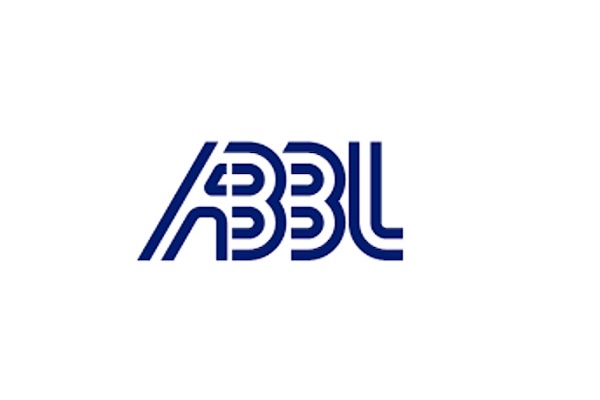
On Thursday 23 October 2025, the Luxembourg Bankers' Association (ABBL), through its Retail Banking Cluster (RBCL), highlighted how retail banks in Luxembourg are adapting to increasingly diverse customer expectations by strengthening the complementarity between digital innovation and personal service.
The presentation, held in collaboration with consultancy firm SIA Luxembourg, focused on the evolution of customer behaviour, the specific challenges of Luxembourg’s multilingual and cross-border market, and the sector’s efforts to balance regulatory compliance with efficiency and trust.
More Digital, Demanding & Security-Focused Clients
According to SIA Luxembourg Country Manager Mehdi Mekhneche, “Today, clients are more digital, more demanding, but also more attached to proximity and security.”
He noted that expectations are increasingly shaped by customers’ experiences with digital services in other sectors, particularly regarding security, personalisation (AI and proactive recommendations) and simplified processes through integrated solutions.
Mehdi Mekhneche added that “it is less the banks pushing clients toward digitalisation than the reverse,” highlighting the growing competition from BigTech and neobanks. Luxembourg ranks ninth globally for digital banking maturity, reflecting strong technological capacity and customer alignment.
Luxembourg’s Unique Retail Banking Environment
Mehdi Mekhneche underlined that retail banking in Luxembourg differs significantly from neighbouring countries due to its cross-border, multilingual and fiscally complex environment. “More than half of residents are of foreign origin,” he said. “They bring diverse financial cultures and experiences. The Luxembourg banker must combine the best elements from each to meet these clients’ needs.”
Balancing Compliance & Efficiency in Account Openings
RBCL Vice-Chair Laurent Zahles stressed: “Luxembourg banks have always wanted to open accounts” and continue to do so. Retail customer deposits and loans remain stable at €84.1 billion.
He acknowledged, however, that opening accounts for legal entities can be complex due to strict anti-money laundering (AML) requirements and multi-jurisdictional structures.
To address this, the ABBL and the Financial Sector Supervisory Commission (CSSF) have published practical guides for companies and non-profits to help ensure complete documentation. “Two-thirds of account-opening time is typically spent by clients gathering required documents,” Laurent Zahles noted. He also cited ongoing work to digitalise onboarding processes and improve interoperability with public data systems.
Cybersecurity & Fraud Prevention
With cyberattacks and online fraud on the rise, the ABBL is strengthening its cybersecurity framework through its Trust and Cybersecurity expert group, which collaborates with the CSSF, the Luxembourg House of Cybersecurity and ICT Luxembourg.
“Criminals rarely breach banking systems,” explained Laurent Zahles. “Instead, they exploit the weakest link, the human factor, using increasingly credible scenarios to trick clients into revealing credentials or executing transfers.”
In partnership with the Luxembourg House of Cybersecurity and fourteen institutional partners, the ABBL has launched the first national public awareness campaign on online fraud, emphasising that collective action across sectors is essential.
The RBCL also reviewed the rollout of instant payments and the “Verification of Payee” system launched on Thursday 9 October 2025. Laurent Zahles commended members for meeting tight deadlines, adding that while the system strengthens payment security, users must “remain vigilant and follow best practices”.
Seamless Banking Between Branches & Digital Channels
According to the European Central Bank, half of euro area residents wish to retain access to cash. “This confirms excellent national coverage,” said RBCL Chair Claude Hirtzig, noting that Luxembourg has 26 bank branches and 58 ATMs per 100,000 inhabitants - among the highest levels in Europe.
Customers are visiting branches less frequently (2.4 times per year in 2024 versus 3.1 in 2019), but increasingly for higher-value advisory services. At the same time, 95% of payments in Luxembourg can now be made digitally, placing the country second in Europe for cashless transactions.
“These developments do not mean the sector will become fully digital,” Claude Hirtzig said. “Some banks will go further, others less, depending on their strategy and clients’ preferences. What matters is smooth interoperability between channels.”
Housing Loans & Responsible Lending
Addressing the housing crisis, Laurent Zahles reaffirmed that banks “have always wanted to lend and are part of the solution”. He emphasised that banks apply a cautious and responsible credit policy, ensuring neither depositor risk nor borrower overexposure.
After a slowdown in 2022-23 following rapid interest rate hikes, mortgage lending rebounded in 2025. In the first half of the year, 9,936 mortgage loans were granted (+39.9% year-on-year), representing €4.75 billion in total volume (+34.1%).
Mobilising Savings for Europe’s Green and Digital Transition
Investment products have regained interest among clients in 2025, following a year of strong demand for term deposits. Claude Hirtzig noted that “80% of corporate financing in Europe still comes from bank credit,” but reaching the €1 trillion annually needed for Europe’s green, digital and security transitions will require mobilising household savings.
He stressed the importance of completing the European Savings and Investment Union and enhancing financial education. “We must help citizens move from being passive savers to responsible investors shaping Europe’s future,” he said.








